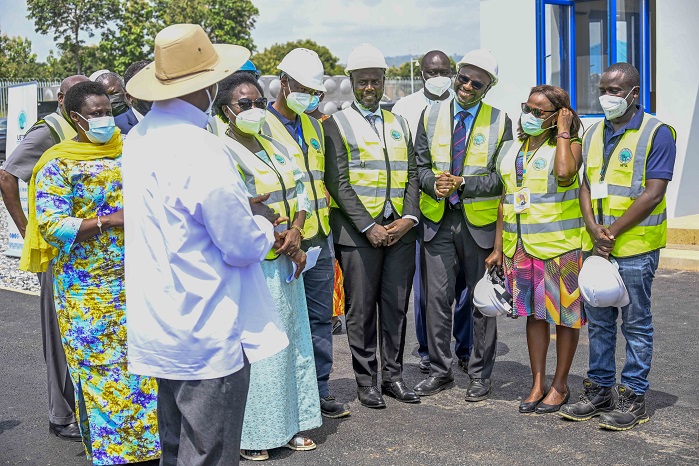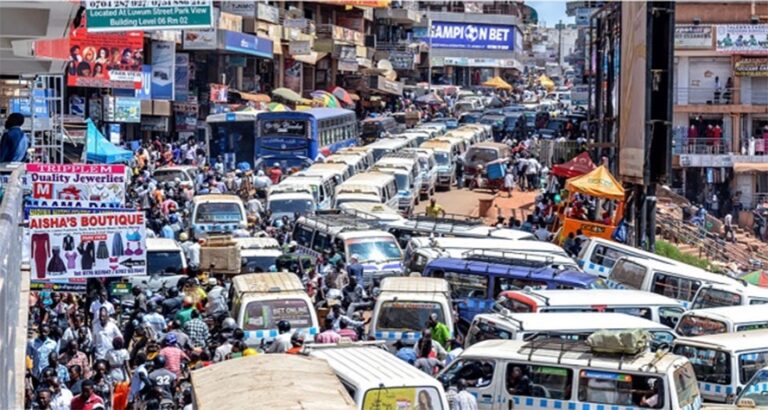
HABARI DAILY I Kampala, Uganda I Following the official unveiling of the 600MW Karuma hydro power dam last week, experts have sounded that since Karuma is going to raise the stock of surplus power in the system, the Government should draw a plan to intensify export of electricity for revenue generation.
The Electricity Regulatory Authority (ERA) estimates that as of December 2022, installed electricity capacity in Uganda was 1,402 megawatts (MW) with demand at 843 MW, leaving a surplus of 559 MW.
“Uganda’s original reform program, and lately, the UETCL grid development plan, were premised on a vibrant export market. To date, only 7 percent of the energy is exported, despite the supply overcapacity,” says the World Bank.
It pointed out that this is because the government of Uganda did not prioritize the development of the requisite export transmission infrastructure while developing generation projects.

Ministry of Energy officials who graced the commissioning of the Northern Grid recently
“Further, there has been no dedicated institutional structure and strategy to promote energy export. Therefore, there is a missed opportunity to optimize generation capacity through export in the medium term,” it said in a report titled: Uganda Country Private Sector Diagnostic 2022.
It further said that while the neighboring countries build their supplies, Uganda remains poised to benefit from export given its central location, making it a cheaper alternative than those countries supplying from afar.
The World Bank further counselled that unless Uganda invests now to
further its transmission and distribution network, the mismatch between supply and demand could increase total electricity costs by over $950m (sh3.5 trillion) per year.
“Moreover, to ensure successful delivery on the publicly stated government goals of increasing access to electricity and reducing its costs, Uganda needs to build on the positive outcomes achieved in the previous reform process—including increased participation by the private sector in the economy—rather than reverse those reforms.”
Ocici decried the Government’s negligence of the existing infrastructure, by not allocating a maintenance budget.
“That is also likely to befall Karuma. The Government should provide an annual maintenance budget for the electricity’s infrastructure if the country is to avoid the fate that befell the defunct Uganda Electricity Board (UEB),” he said, adding that due to the anomaly, the transmission network broke down, resulting in excessive charges to keep the system going.

President Museveni officially commissioning the Northern Grid recently
“This sent the entire distribution network to the dogs. There was a persistent lack of a budget for maintenance and network expansion. The country should not be taken back to those days,” he said.
Ocici said Karuma dam should teach Ugandans to appreciate every key infrastructure as a contributor to the country’s economic prosperity.
“The income the Government distributes through the national budget should come from functioning infrastructure. This means that alongside every budget allocation should be a budget for maintenance. We shouldn’t wait for structures to crumble like at Makerere residential halls and Soroti Airport, in order to generate a budget to prevent their total collapse,” he said.




